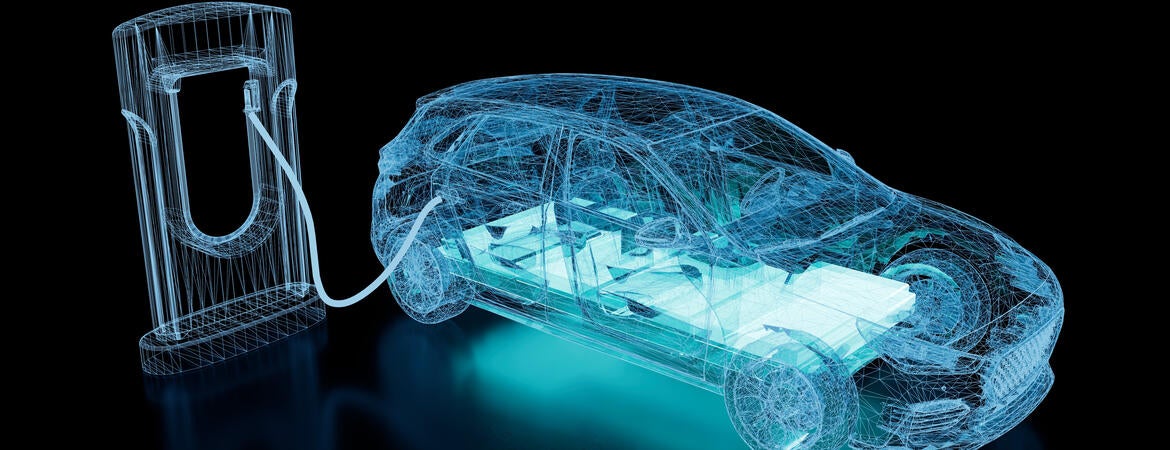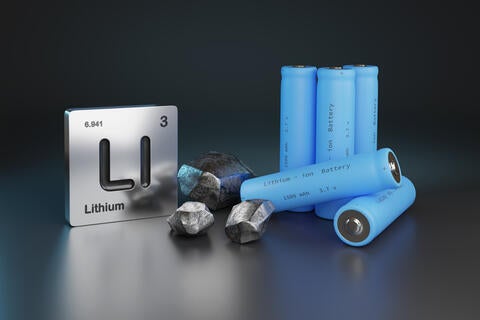
Hoping to forestall an expected global lithium shortfall, those working to establish a sustainable lithium mining industry in Southern California have gotten a surge of support with a new grant from the U.S. Economic Development Administration.
The $500,000 grant is helping establish the Lithium Valley Clean Tech Hub, a consortium of academics, private industry, government agencies, and nonprofit organizations. Imperial County and UC Riverside will jointly lead the charge.
"UC Riverside is looking forward to working with Imperial County and our other consortium partners to establish inland Southern California as a national leader in sustainable lithium technology,” said Principal Investigator Shane Cybart, director of the UCR division of the California Institute for Telecommunications and Information Technology.
Academic partners include San Diego State University, Imperial Valley College, and California State University San Bernardino, while lithium extraction companies Berkshire Hathaway Energy Resources and Energy Source Minerals have also signed on.
Rounding out the hub, in addition to other government and private investment partners, are lithium battery manufacturing companies Statevolt, Starz Electronics, SiLi-ion Inc., and Sulfuron Corporation, as well as battery recycling firm Omega Harvested Metallurgical.
Batteries for mobile phones and laptops, as well as non-rechargeable batteries in pacemakers, toys, and clocks cannot be made without lithium. The soft, silvery metal is also critical for electric vehicle batteries but is only currently produced at one mine in the U.S., in Nevada.
As demand for lithium is expected to grow dramatically in the coming years, efforts to increase domestic sources are increasing. In addition to securing this domestic source by building on geothermal industry partners’ already significant investments in lithium extraction, the hub will support battery manufacturing and marketing as well as e-waste recovery.
“From taking it out of the ground and putting it into batteries, we are interested in the whole economic cycle from extraction to production to recycling and disposal,” Cybart said.
Imperial County will play a leading role in the consortium by recruiting a regional innovation officer to organize and coordinate the efforts to help plan and launch the consortium.
As part of the project, a UCR technical staff will be based at UCR’s Palm Desert Center and main Riverside campus to work with consortium members to provide technical lab services and workforce training for partners in the region.
This training reflects a key goal of the consortium, which is to balance lithium’s potential against local economic and environmental concerns. Training offered through hub partners will build on existing workforce skills in local communities and enable people to qualify for good jobs in the energy industry.
Another of the consortium’s goals is to ensure that domestically mined lithium can be identified as such. To further this goal, UCR’s Palm Desert campus will establish a laboratory for “fingerprinting the lithium,” confirming the source of what gets extracted from the ground.
The federal grant is being matched by an additional $110,000 in funds from UCR and $15,000 from San Diego State University. As the funds empower new staff to strengthen the Hub consortium over the next year, the partners are feeling a surge of enthusiasm for all the potential opportunities.
“The technological advances we’re developing represent cleaner alternatives to what we have now,” Cybart said.
“Not only that, I’m also excited about this project because this is our chance to do something more than just science. Creating good paying jobs in the region will really make a difference in the lives of many people in these communities.”
(Cover image: Just_Super/iStock/Getty)




